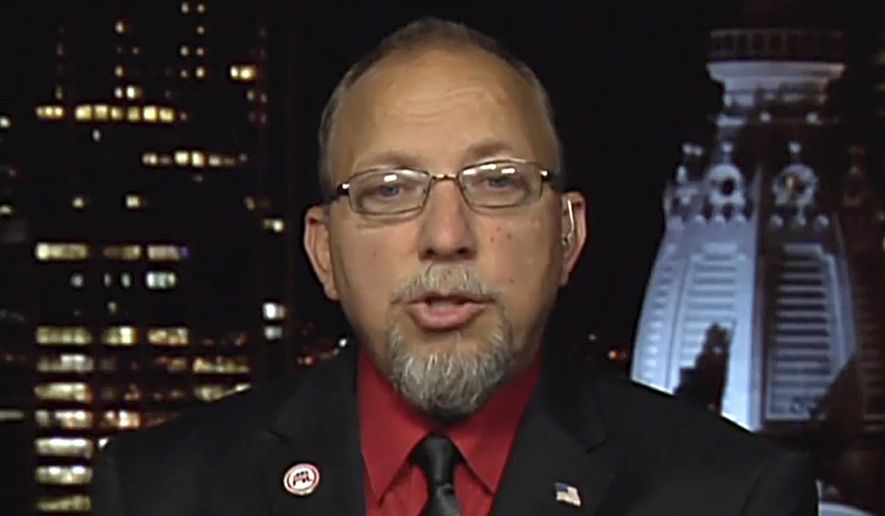OPINION:
It wasn’t until about 6:30 p.m. Wednesday — 22-1/2 hours after the polls closed in New Jersey — that the Associated Press called the race for governor in the Garden State for the incumbent Democrat, Phil Murphy.
With 99 percent (6,269 of 6,348) of precincts reporting, as of this writing, Mr. Murphy led his Republican rival, Jack Ciattarelli, by the proverbial whisker, 50% to 49%, or 35,718 votes. That’s out of more than 2.44 million votes counted.
Through much of Tuesday night and well into Wednesday, Mr. Ciattarelli, a former member of the New Jersey General Assembly, was running ahead of Mr. Murphy, who surely saw his political life flashing before his eyes until the last of the heavily Democratic urban precincts began trickling in, dragging the bloodied incumbent across the finish line.
As of this writing, Mr. Ciattarelli still hasn’t conceded the race and may yet seek a recount, but unfortunately for New Jersey’s long-suffering taxpayers, it looks like the New Jersey governorship will remain in Democratic hands, if barely.
That’s not entirely surprising, given a state where there are 1 million more registered Democrats than Republicans, but who knew that a blue state that went for Democrat Joe Biden for president by 16 percentage points just 364 days earlier would see a nail-biter?
Had Republicans flipped the New Jersey governorship from blue to red in tandem with Virginia—which elected not only a GOP governor but also a lieutenant governor and an attorney general, for the first time since 2009—it would have upped Tuesday night’s electoral earthquake from a 5.5 to an 8.0 on the political Richter scale.
While the demise of former Virginia Gov. Terry McAuliffe’s comeback bid can be traced directly to a monumental political gaffe, he made in a Sept. 28 candidates’ debate, in which he petulantly insisted parents should have no say in what schools teach their children, Mr. Murphy’s near-death experience stemmed in no small part from something he said nearly two years earlier on Oct. 1, 2019.
“If taxes are your issue, then New Jersey’s probably not your state,” he said dismissively of complaints about high taxes there.
But when the quote was used against him in attack ads, Mr. Murphy fled to the last refuge of political scoundrels. He implausibly insisted that he was being taken out of context, just as Mr. McAuliffe tried unsuccessfully to do. And just as in Virginia, New Jerseyans weren’t buying it.
And Mr. Murphy’s badly mismanaged handling of the COVID-19 pandemic—involving nursing home deaths and mask and vaccination mandates—didn’t help.
If only the national Republican establishment had given Mr. Ciattarelli’s campaign greater support, he likely would be governor-elect today. It was a missed opportunity, probably stemming from belief in polls that until the last week or so of the campaign showed Mr. Murphy with double-digit leads—erroneously, as it turned out.
Mr. Murphy may have survived the electoral earthquake. Still, the consolation prize for New Jersey Republicans was the pickup of eight seats in the General Assembly, the lower house of the Legislature, cutting the Democrats’ majority there in half.
And in what’s undoubtedly the most improbable upset of this or any other election cycle, a conservative truck driver who spent a scant $2,300 on his campaign defeated longtime state Sen. Stephen Sweeney, a Democrat who for the past 10 years has served as New Jersey Senate president.
The AP called the race Thursday morning for Republican Edward Durr, an advocate for gun rights and cutting taxes, who held a lead of about 2,300 votes over Mr. Sweeney. (As of this writing, however, he still had not conceded the race.)
Mr. Sweeney reportedly had been eyeing a gubernatorial bid in 2025, but those aspirations appear to have gone the way of Mr. McAuliffe’s dream of returning to Virginia’s governor’s mansion.




Please read our comment policy before commenting.